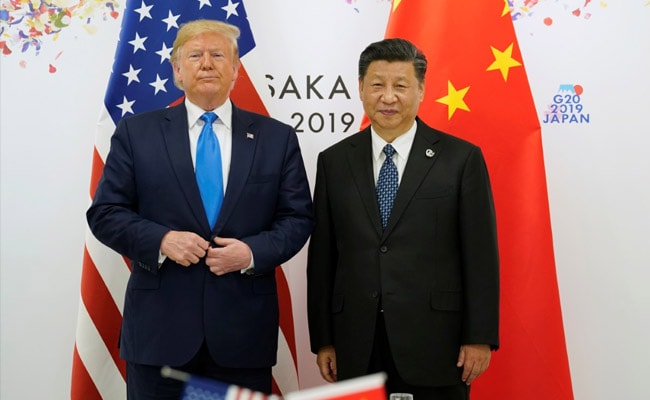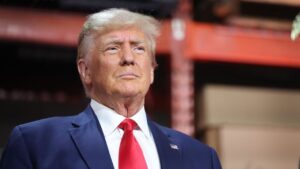

New Delhi:
India’s manufacturing industry is bearing the brunt of a fallout between the United States and China over threats of a trade and tariff war by the incoming Trump administration, and its retaliatory measures imposed by Beijing.
In recent years, under its flagship ‘Make in India’ programme, India has seen exponential growth in key sectors like solar power, electronics and mobile manufacturing, and the automobile sector, especially for electric vehicles or EVs – all of which are directly or indirectly dependent on raw materials, components, and ancillaries supplied by China.
As China prepares for an imminent face-off with the US, which may be just days away with Donald Trump’s return as President on January 20, Beijing has already made the first move by taking some precautionary measures as a warning to Washington that it too will suffer the trade war.
China has put restrictions on the export of key raw materials, essential rare earth minerals, components, high-tech equipment, and machinery which are needed to manufacture solar panels, its parts, mobile phones and other gadgets, as well as EVs and its batteries.
These curbs not just pertain to direct exports to the United States, but to any other country which uses them to manufacture finished products meant to be shipped to the US.
In December 2024, China banned the export of gallium and germanium, which are vital for solar cell production. Shortly after that, it also banned antimony, critical for semiconductors and essential defence technologies. Earlier this month, Beijing further declared that it will now add lithium extraction and battery cathode technologies – which are crucial for EV battery manufacturing – to its controlled export list.
With the US having reduced its dependence on China for a large part of its overall imports, Washington has, in recent years, increasingly turned to New Delhi as an alternative to Beijing to fill the deficit. And so, China’s latest curbs, though aimed at the US, has indirectly hurt India too.
“Indian firms in electronics, solar, and EV sectors are facing major delays and disruptions as China has blocked exports of inputs and machinery,” economic think-tank GTRI founder Ajay Srivastava said, adding that “India is particularly vulnerable to China’s export restrictions, as many of its industries depend on Chinese machinery, intermediate goods, and components.”
“This also signals deeper geopolitical tensions and trade war. We hope India-specific restrictions go away soon as they will also hurt China,” he added.
India’s imports from China increased to $101.73 billion in 2023-24 from $98.5 billion in 2022-23.
The think-tank even suggested that China’s moves may be double-edged, as Beijing has been displeased for a while over New Delhi’s restrictions on Chinese investments and visas for its nationals.
In 2020, shortly after the deadly Galwan Valley clash between Indian and Chinese soldiers in eastern Ladakh, the Government of India had made it mandatory for countries sharing land borders with India to seek its approval for investments in any sector. The move was also made keeping in mind India’s national security objectives in its volatile neighbourhood.



